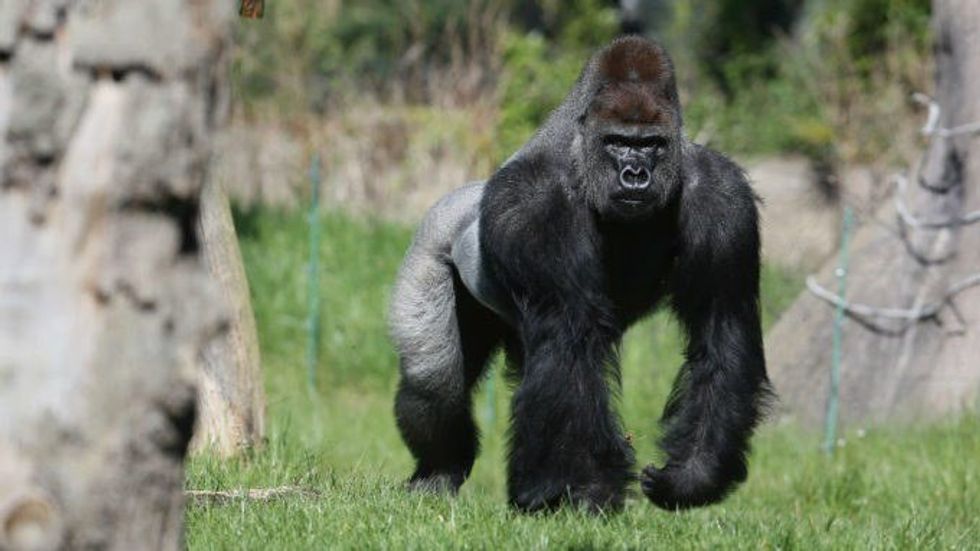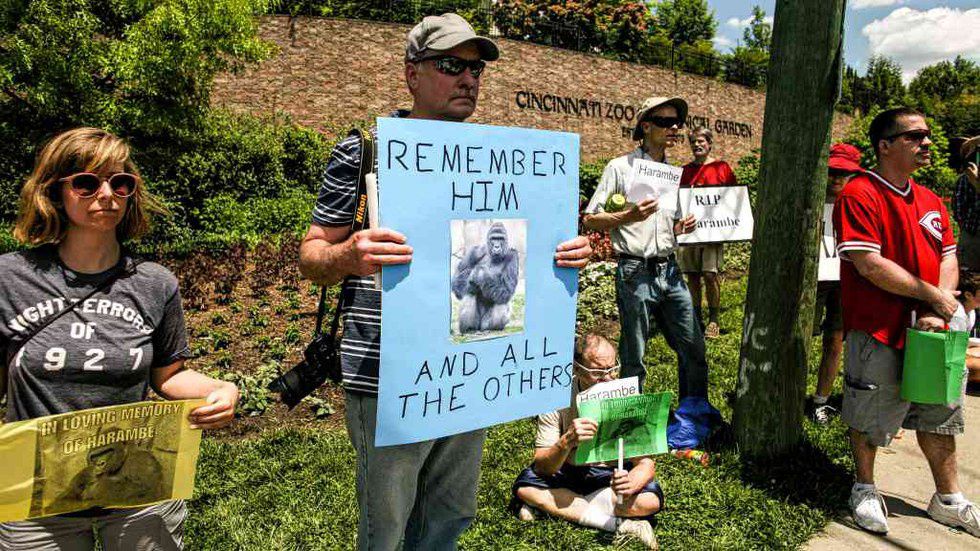Everyone has heard of the recent tragedy at the Cincinnati Zoo that involved a silverback gorilla named Harambe and a 4-year-old boy. I am not here to tell you the story for the 100th time. You have also probably heard of, and maybe even participated in, all the outrage that followed it. And that is the issue I am going to address.
There has been much hype surrounding who should take responsibility for Harambe's death. Many people accuse the mother of neglecting her son; however, the mother is not to blame. Children are curious and can easily be lost in large crowds. Parenting is not the problem.
Others blame the zookeepers, but tranquilizers could have agitated the gorilla more and calling the animal out of the enclosure would not work. No alternative actions could be taken, so this is not the problem either. Finally, other people blame the design of the zoo, claiming that the enclosure should have not one, but two barriers between the gorillas and the humans. Nope, still not the main problem.
The real issue is the people who believe there is any issue at all with how things were handled. Thousands are in an unnecessary uproar. The whole incident really comes down to this: human lives versus animal lives.
Human lives are greater than animal lives.
There, I said it. Keep your head straight, look at the situation and follow my train of thought as you read the rest of this article.
You are human, correct? OK, remember that.
In the Cincinnati Zoo incident, there were only two possible outcomes: save the 4-year-old boy or let him be in danger (yes, he was in danger, because he was being dragged around in the water and in contact with an insanely strong, 450 pound animal). Do not look at this in the perspective of the gorilla. You are a human just like that little boy is also a human; therefore, it is good and right to look out for one another.
In this situation, it is ethically correct to save the boy if you have the power to do so. Letting another human suffer if you have the ability to prevent it (while keeping yourself safe) is wrong. Allowing this to occur would either be called cowardly or evil, both of which are looked down upon.
Letting another human suffer is not to be confused with killing something. When I say that human lives are more important than animal lives, I am not giving mankind license to destroy all animals' natural habitats and shoot them for any reason we see fit. We can all agree that killing a creature for unnecessary purposes is immoral. I am saying that when it comes down to human lives, it is morally right to not let suffering occur.
The alternative.
I do not mean an alternative action that could have been taken, but rather, an alternative response from the public. Yes, grieve the loss of Harambe. It is truly unfortunate that protecting the little boy had to result in Harambe losing his life, and it is nice to recognize the happiness that he brought to many people.
As for the protests, accusations and petitions – stop it. Rather than blaming the zookeepers, we should be acknowledging that they played a key role in saving a human life. We should also be glad that the child is safe and reunited with his family.
It was an alarming, tough and sad situation. It was handled properly. All we can say is that we will miss Harambe, yet we celebrate the human life that was saved.























